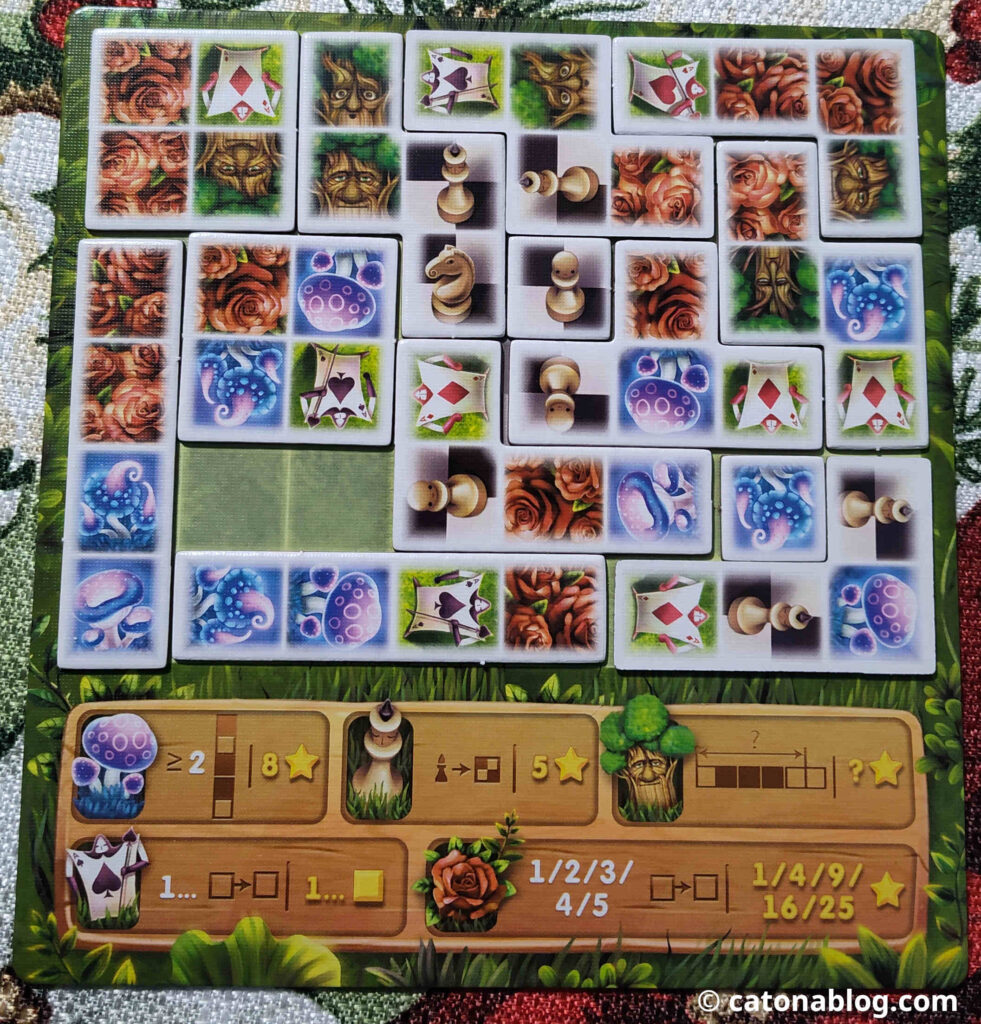
Jan 5th, 2024 Friday Cloudy
I used to dislike games with a tile placement mechanic. While I am totally fine with Tetris-like games, where the only goal is to put down the tiles in a way to remove entire rows, modern tile placement games (e.g. My City, Alice’s garden) all have an added layer of complexity – the final layout is scored according to how well the tiles satisfy certain defined requirements.
As soon as I learn the rules of the game, I can easily see what kind of tile arrangements are being rewarded and plan accordingly. For example, in Alice’s garden, you want the knight pieces to be in the middle of the board, the tree pieces to stay separated on two ends of a row, the roses to cluster together, and the mushrooms stacking up in columns. I would even start to picture how differently shaped pieces could fit together on my player board to maximize the points.
Then a problem arises. Because the players take turns to draw tiles from five different bags (each of them contain tiles of a single shape), and take turns to select tiles on the table, the tiles I get to choose from are somewhat random. More often than not, none of the tiles works very well for me, yet I still need to pick one and put it into my garden. Other times, I would be hoping for a specific tile to finish my carefully designed garden, yet that tile eludes me.
That is the source of my frustration. My ideal seems never realized.
During the recent trip to visit my in-laws for the holiday, my husband and I decided to gift the Alice garden game to my mother in-law. It is a game with relatively simple rules and helps to keep her occupied now that she is retired. She happily played it with us, again and again, even though her score was always lower than both of us.
“I like this game.” She smiled.
Suddenly, it dawned on me: I was too fixated on getting the perfect score, and I downplayed the value of just completing the board. As long as I fit all the tiles neatly into my garden, I will have a garden that will earn me some points, even if I ended up not winning. In a game where randomness is bound to happen, I would undoubtedly set myself up to disappointment because the chance of all stars aligned is close to zero. Instead of wishing for miracles to happen and agonizing over every single step taken, I would be fine going with what appears to be the best option at the moment, and moving on.
After all, no life path is impeccable. A path with ups and downs, sunshine and rain, is still worth traveling.
So I adjusted my approach to this game. Rather than having a particular blueprint in my mind, I only start with a general idea, then I wait to see what tiles become available and go from there. I stop focusing on achieving one hundred percent, and try to enjoy the pleasure of filling up a beautiful garden.
Interestingly, I somehow won more games this way 🙂
Just do the best I can right now, and accept the imperfection of the outcome – life is so cool, from a different point of view, isn’t it?
Beautiful sentiment!
Thanks! I learn many life lessons from seemingly unrelated things (like games).